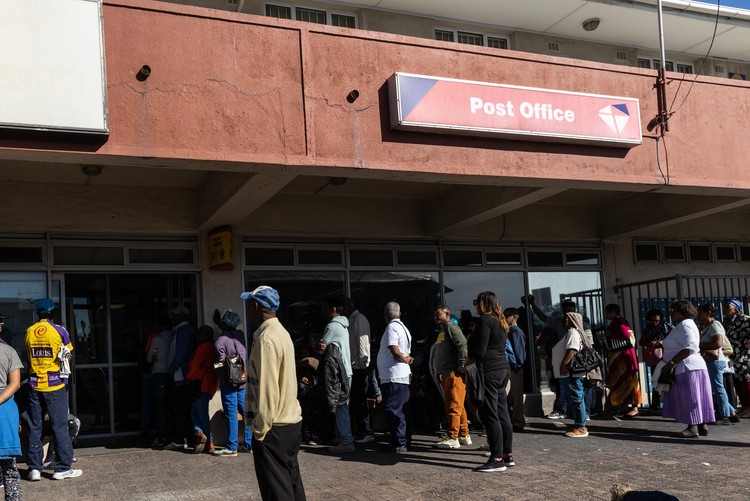
28 August 2025
About three million SASSA grant beneficiaries receive their grants through Postbank. Archive photo: Ashraf Hendricks
Social grant beneficiaries have been assured that payments will continue without disruption when the service agreement between the South African Social Security Agency’s (SASSA) and Postbank ends on 30 September.
“The facts are simple: beneficiaries will continue receiving their grants, Postbank remains a functioning bank, and no new service provider is being appointed,” Social Development Minister Sisisi Tolashe told Parliament’s portfolio committee on Social Development on Wednesday.
SASSA was briefing the committee on the expiring of its Master Service Agreement (MSA) with Postbank and how it plans to ensure a smooth transition.
The contract, taken over from the SA Post Office (SAPO) after its collapse in 2022, has guided the grant payment system since 2018. It originally included over-the-counter and cash paypoint services.
SASSA pays roughly 19 million grants (excluding the Social Relief of Distress grant) to about 12 million people, paying out about R22.4-billion every month. Funds are deposited into beneficiaries’ bank accounts at 22 institutions. Most beneficiaries are served by Capitec (7.6-million), followed by Postbank (3-million) and African Bank (2.1-million).
Explaining the background, Tolashe said the MSA followed a 2018 Constitutional Court order ending SASSA’s contract with Cash Paymaster Services (CPS) after a case brought by the Black Sash.
“At the time, SASSA didn’t have the infrastructure or the knowledge to distribute grants … This is how we got into partnership with the Post Office,” she said.
SAPO took over from CPS with approval from the National Treasury, because it had a nationwide branch network. SAPO had been admitted as a friend of the court during the court hearing.
SASSA executive manager for grant operations Brenton Van Vrede said over-the-counter services and cash paypoints had been shut down by April 2024. “Once the decision came to close those two services, the MSA no longer served its intent.”
“In December 2023, SASSA requested Postbank to end the MSA earlier, giving them six months’ notice, but they declined that request. Postbank insisted that the full 18-month notice be given as per the MSA,” Van Vrede said. The termination date of 30 September 2025 was finalised in March 2024.
But Postbank will remain part of the payments system. “Nothing should change as of 1 October. Beneficiaries should be able to get their money through existing payment channels,” said Van Vrede.
Some MPs expressed concern about communication and oversight.
Alexandra Abrahams (DA) said Postbank should have been invited to the briefing and criticised SASSA for not making beneficiaries more aware that they could have grants paid into any bank. “This would have solved people’s suffering when it came to long queues at cash paypoints and card renewals,” she said.
Committee chair Bridget Masango (DA) noted some beneficiaries might still prefer cash instead of receiving their grants via banks.
Tshilidzi Munyai (ANC) said Postbank and the Reserve Bank should present to Parliament and warned there might be panic among the three million Postbank clients. “How will you reach them to counter scammers who will exploit this news?” he asked.
SASSA spokesperson Paseka Letsatsi responded that the agency works with the Government Communication and Information System to reach beneficiaries through “about 120 community radio stations”.
He said their communication strategy focuses on major African-language broadcasters, including Ukhozi FM, Umhlobo Wenene FM, Lesedi FM, Thobela FM and Motsweding FM, which together reach about 19 million listeners.
Tolashe also addressed SASSA’s biometric plans. “We are well aware that there are criminal activities; that’s why there are more than ten cases against SASSA officials who have manipulated the system and paid the wrong people,” she said.
Van Vrede said, “We’ve been piloting the biometrics systems at a few of our offices on a small scale since the beginning of this financial year … We believe we are ready to go live with biometrics for all new grant applicants.”
Biometric enrolment for all new applicants begins on 1 September.